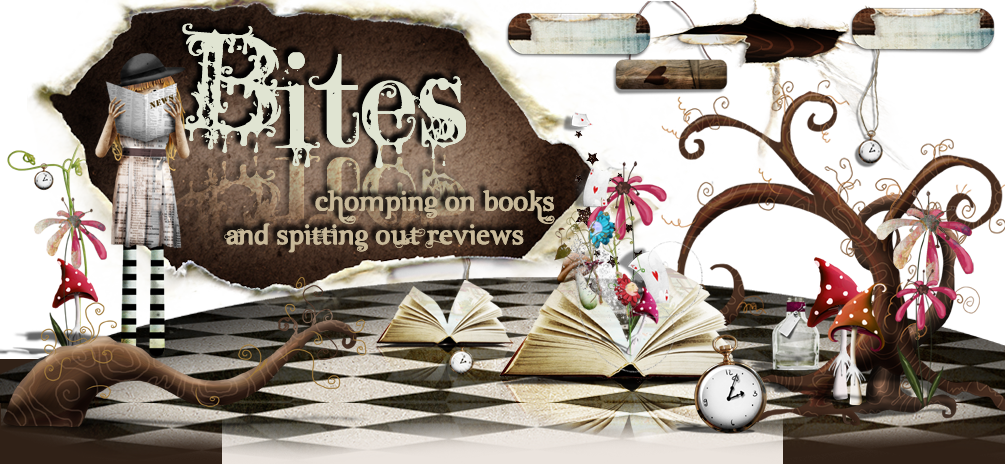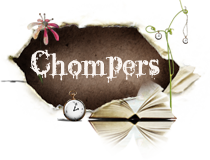Aside from the fact that that point of view is horribly out of date and optimistic to the point of unrealistic, I think it's blanketing too much of the reading that's out there. She talks about it as if all children's books have endings that you'd rather slit your wrists to than feel happy about. That they're all too real and children don't need to be exposed to that.
The thing is, what's being written in children's books now is happening to children. Ellen Hopkins is a wonderful case in poi
 nt. Her books are not dire and depressing and offer nothing to the reader. In fact, quite the opposite. They're warning tales and even amidst the hardships of the characters, there is a ray of sunshine but it's not about to slap you in the face.
nt. Her books are not dire and depressing and offer nothing to the reader. In fact, quite the opposite. They're warning tales and even amidst the hardships of the characters, there is a ray of sunshine but it's not about to slap you in the face.Not all children or teens are white and from the middle class that skip around going tra-la-la. Yes, up-beat adventure books are fun. But even the 50s had poor kids. Destitute kids. Minority kids. Kids from bad homes. Sure they could read those books to escape but as soon as their noses were out of them, we were back in reality where things weren't so rosy. With this grittier network of reading material, it provides an alternative. Something that more children can relate to and in turn become hopeful about once they reach the end of the book. It's not such a stark difference between the book and real life but if there's a glimmer of hope in the book, so can there be in life.
Gritter books have their merits just like the fluff does. It doesn't make it any better or worse than whatever else is out there. But there are options. Kids change. Their desires change. Sure they want fantasy, someplace they can escape to, but the characters need to be those they can relate to. If they can't relate, if they can't picture themselves in those characters shoes, then what good is the fantasy?
What do you think? Are books getting too gritty? Should the market pull back or do you think this influx of more realistic fiction offers something that wasn't there in the article's mentioned author's happy time?











13 comments:
Grit is good. My favorite books can all be described as gritty, or at least that's how I describe them. I love books that are easy to relate to and show me different sides of life, good and bad. And hiding your kids from reality doesn't soften it, it just makes it more shocking when they're exposed to it. Books are the best way for them learn how to deal with the hard stuff.
Great post! I'm still struggling to get my thoughts on censorship in words. I've talked about it with my friends, but it's not easy when you're basically talking to yourself but with the whole world watching (or t least 40 some odd people).
My creative writing text once said that people liked reading stories so that they could wander in someone else's hell for a while (or words to that effect).
Personally, I think that gritty, realistic books challenge people more than having it all end happily with a deus ex machina. And that's always a good thing.
Whenever I read nostalgic back-in-the-day stuff like that particular author's perspective I have to wonder if the person thinks that realism in books marketed towards children is a new trend only because it's different from what she's been exposed to in the past. I think it's more a case of what constitutes gritty and what constitutes appropriate- there were people who thought that the Hardy Boys were going to be the downfall of American civilization because their escapades had kids reading instead of doing other things that were considered more appropriate. Did that end up happening? Nope!
I would also be interested to know that author's position on reading fairy tales to children- those are gritty for sure, but over the years have become staples for read alouds and other settings.
Gritty is the way to go.
I like gritty books. Not because it's refreshing to see characters that struggle and have it so bad that I think my life is as easy as pumpkin pie (yummy), but because it's engaging. Look at all of the popular TV shows--we're (or at least I am) addicted to drama.
I like the grittiness although I'm also a sucker for a happy ending. I remember loving those peaches and roses books when I was younger but today's books seem more real to me and I enjoy that. Granted being an adult now reading YA books may have affected my opinion.
As a book loving kid I enjoyed reading the Grimm brothers stories as much as I enjoyed Enid Blyton so I'm not really sure where I stand in this debate. Perhaps it's up to the child (and parents) to find out what subjects they enjoy the most. Strangely, I didn't cope well with Lassie's onscreen, perilious escapades...ended up sobbing and terrified for her safety every episode. She ended up banned from the TV schedule.
Maureen Hume
www.thepizzagang.com
I wonder if the person who wants to harken back to the '50s is pregnant, barefoot, and in the kitchen, seeing as how those books basically reinforce traditional gender roles (i.e., Mom stays in kitchen, dad is breadwinner..etc). Fuck that noise. It wasn't that long ago that I was a kid, and I loved the books which made my child-heart cry, i.e. What Child Is This by Caroline B. Cooney (a book about foster children on Christmas, basic sobfest for an 11-year old), Bridge to Terebithia (death), the Pinballs (foster kids with bad home lives), and Shiloh (featured animal abuse). I think it's better to have realistic fiction out there for children, because people like reading about someone they can relate to. Actually, there's this thing called bibliotherapy (you've probs heard of it) where a student is recommended books which relate to their life problems, they see the character going through the problem and triumph. The book I Won't Read And You Can't Make Me by Marilyn Reynolds goes a bit more in-depth on it, and on how bibliotherapy and realistic, gritty books encourage reluctant readers to actually enjoy books. I mean, as a kid from a bad family, I probably could care less about kids who come home, eat cake, then go look for spot do. I'd probably want to read about Jess Aarons and his poor family, the fact that he's always being bullied, yet he overcomes all of that, he overcomes great tragedy. Yes, I would think Bridge to Terabithia is 100x more interesting than one of those 1950s innocent books.
I kind of wish those harpies would pull their heads from their asses and take a look around, this isn't the same world as the 1950s. Oh noez, people of color have rights, gays and lesbians are more than just a rumor, women -GASP- have jobs! Ah, the downfall of society (/sarcasm). Not that the 1950s were perfect, I mean "Little Rock, Pasternak, Mickey Mantle, Kerouac
Sputnik, Chou En-Lai, "Bridge on the River Kwai"
Lebanon, Charles de Gaulle, California baseball
Starkweather, homicide, children of thalidomide" No...'we didn't start the fire.'
Yeah, maybe I shouldn't reference a Billy Joel song as fact, but the song highlights the 50s which were far from 'Happy Days.'
Awesome post, BTW, it's definitely woken my brain up (it's 6:30 am here).
HI Donna! I have sort of an award for you! :)
http://crystalreviews.blogspot.com/2009/09/b-c-of-me-awards_22.html
@ April: Amen, sister!!!
Definitely think that idea is crazy. We live in the world today and our world is gritty. Sure there are the fantasies that don't have grit and if thats what you want to write or that's what you want to read, then go for it. But most people like to have a semblance of real life in their stories and most writers want to include some grit and others like Ellen Hopkins are brave enough to go full grit. It's all a matter of taste and there is a time and place for everything (in terms of levels of grittiness), but sorry, last I checked it was 2009 not 1950 and that means that grit is inevitable.
Yeah, I was kind of shocked when I read that article and that author was so stuck in that mindset.
April, that's one of my favorite songs! Unfortunately he part about "hypodermics on the shore" is about Connecticut beaches. Even more unfortunately they're still finding needles. Ugh.
A librarian from the yasla-bk listserv (The listserv for the Young Adult Library Services Association) said it best:
" . . . kids are living stories every day that we wouldn't let
them read." -Josh Westbrook
I don't think it's fair to NOT represent a certain "gritty" lifestyle, especially when many teens are LIVING said lifestyle. They need something to connect to as well!
Post a Comment